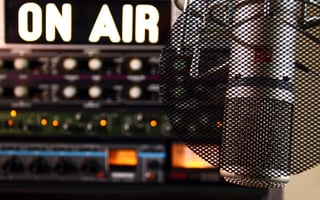You could be forgiven for thinking the answer to this question is relatively straightforward.
Sometimes it is the shortest interviews that catch your attention.
Listening to the radio the other day, it was not the endless reports and debates on Covid testing or the latest Brexit development on the Internal Markets Bill that stood out.
Instead, it was an item that described the UK as “one of the most nature depleted nations in the world” which made me sit up and concentrate.
More specifically, it was the point that the conservationists behind a letter to Boris Johnson were calling on £1 billion from the government for a ‘green recovery programme’, that captured my interest.
Being asked to justify a call for such a large sum of money from the public purse is tricky at the best of times, but in the current climate, with all the economic pressure and uncertainty, it is considerably trickier.
Fortunately, Tony Juniper, chairman of Natural England, was well-prepared for that line of questioning when he appeared on Radio 4’s Today programme (which you can hear by clicking here at 1hr and 14 mins) to discuss the report.
And it is a response that other spokespeople can learn from.
Here’s what he said:
Presenter Nick Robinson: “You are asking the Government to spend a lot of money at a time where there are lots of demands on it. Just answer those who will say ‘yes we want to see the butterflies and make sure the hedgehog doesn’t go extinct, but this has to come low down the list’.
Juniper: “It is a very substantial amount of public money that is being called for. But putting it into perspective, it is only double what the Eat Out to Help Out scheme cost us. And, if you look at the many benefits we would get back from investing in nature – it is not only a cost, it is about securing a series of returns that are crucial for the future of the country. And so, to that extent, you could argue that is value for money.”
What I like about this response is that Mr Juniper didn’t ignore the cost issue. This is something we have been stressing a lot recently in this media training blog – you have to briefly answer or at least acknowledge the question.
He agreed that it is a ‘substantial sum’, but he didn’t dwell on that point or the financial pressure faced by the government. Instead, he quickly put the figure being asked for into context with the Eat Out to Help Out scheme – something everyone listening to the programme would have heard of and many would have used.
And, also something that has been widely regarded as a success - on the day of the interview it had been announced the scheme had driven inflation to a five-year low.
From there, he then went on to talk about the benefits.
Now, if I am being picky, ideally he would have gone on to give some examples of the ‘series of returns’ he and the rest of the experts are looking for.
But, overall, it was a good way to deal with a potentially challenging question that could have steered the interview off course.
What other media training lessons can we learn from this interview?
Well, it was short, lasting just over two and a half minutes. That’s was quite a bit shorter than some of the other interviews on the programme, but it is worth remembering that the average radio interview is about two and a half minutes long.
That means it is even more important for spokespeople to start strongly when they are being interviewed on the radio.
And I thought Mr Juniper did this well, supporting the message that the UK is one of the most nature-deprived countries by talking about the disappearance of habitats and species that have become extinct. That said, as I mentioned earlier, examples would have strengthened the response further. Give us an example of some of the habitats that have been recently lost or the species that have become extinct or are in severe danger.
We can’t stress often enough on our media training courses, or in this blog, just how important those examples are to bring messages to life and make them resonate with the audience.
But overall, I thought this was a good interview, and it left me wanting to hear more from Mr Juniper about the campaign.
Get your radio interview homework off to the best start by downloading your copy of our free media interview preparation eBook.
Media First are media and communications training specialists with over 35 years of experience. We have a team of trainers, each with decades of experience working as journalists, presenters, communications coaches and media trainers.
Subscribe here to be among the first to receive our blog.




